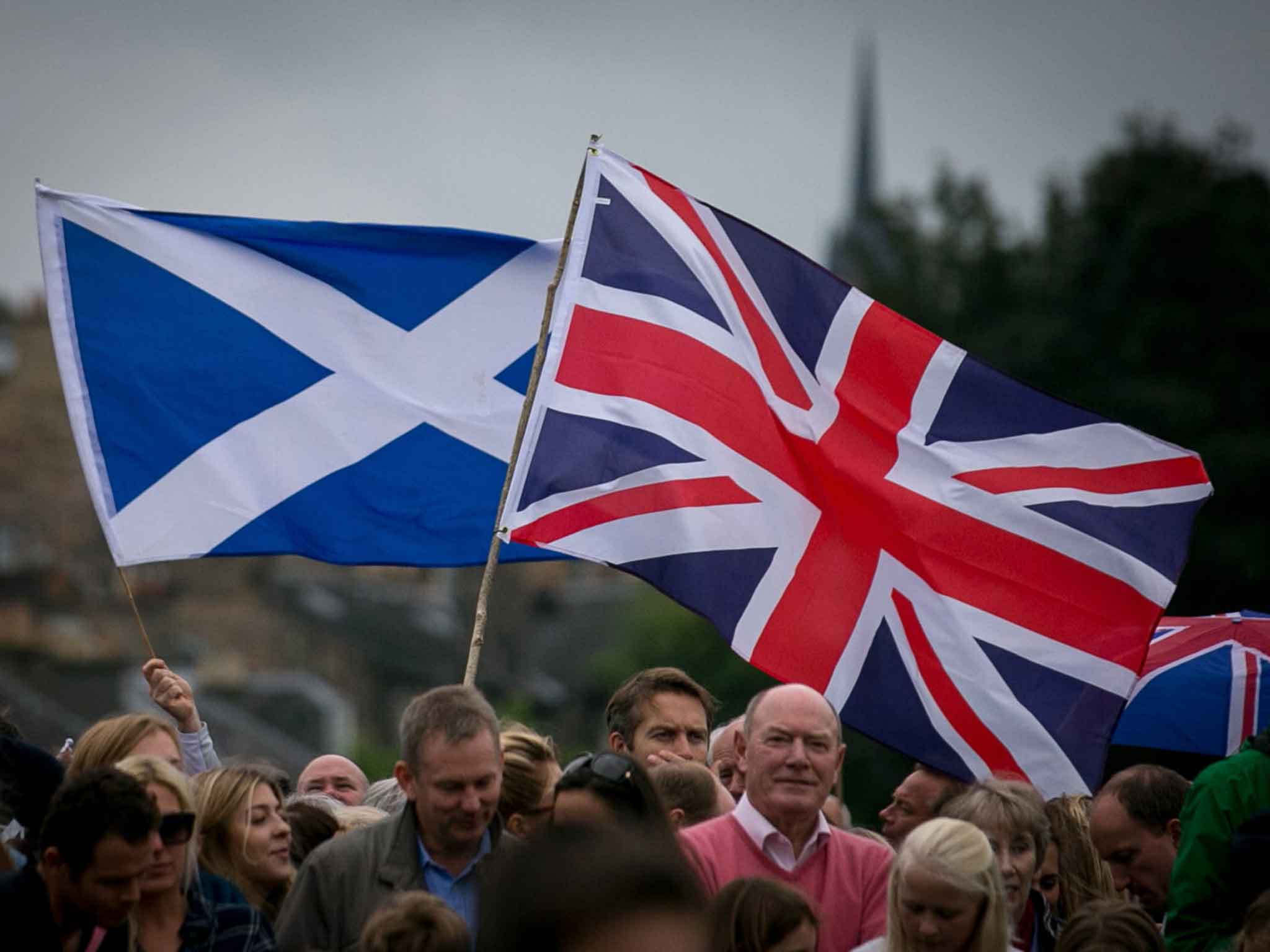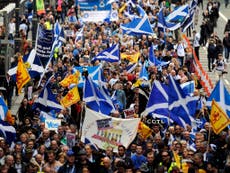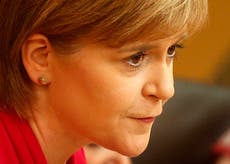The Scottish independence referendum settled nothing – but rushing a second vote would be a zero-sum game for the SNP
Many Scots consider some Tory decisions not simply maladroit but brazenly offensive and inflammatory

Another referendum on Scottish independence may well be likely in the long term, but probably not in the lifetime of the current Westminster Parliament, provided that the UK votes to remain within the European Union in 2017.
That will seem a pessimistic forecast to the many nationalists who are already pressing for a rerun of 18 September 2014. After all, No then won only by a total of 383,937 votes from a voter registration of 4,285,323 Scottish residents, the highest in Britain since the introduction of universal suffrage. That does not seem an unbridgeable gap to the more committed supporters of independence, especially since two polls in recent weeks have suggested a narrow Yes victory if another referendum was to be held anytime soon.
Moreover, the crushing SNP victory in the May 2015 general election has turned Scotland into a virtual nationalist polity. The representation of the two unionist parties at Westminster, Labour and Conservative, has been almost wiped out and replaced by 56 SNP MPs. Labour remains mired in acrimonious dispute about its future objectives as a political party.
Nor has the Yes movement been killed off by defeat. Indeed, many of the left wing activists who mobilised opinion in favour of independence last year have now come together to form a new political party named RISE, an acronym for Respect, Independence, Socialism, Environmentalism.
The current Conservative government in London is committed to a programme of continued austerity and, in the view of some, has embarked on a systematic programme of shrinking the UK state. Iain Duncan Smith’s welfare reforms are already causing much pain for the poorest and most vulnerable in society. These policies which will be visited on Scotland over the next four years or so will help to consolidate independence as a realistic and attractive option for many Scots.
Last year’s referendum result, followed by the electoral destruction of Labour north of the border, crystallised the profound differences in political cultures which now exist between most of Scotland and many parts of England. Some commentators even detect signs that Westminster is gradually evolving into an English-focused parliament rather than one for the whole of the UK.
The Tories have not helped by decisions which many Scots consider to be not simply maladroit but brazenly offensive and inflammatory. The recent appointments to the House of Lords last month may have caused anger in England, but in the Scottish print media and blogosphere they triggered a palpable sense of outrage. An oft-repeated claim was they unequivocally confirmed the decay (and even corruption) at the heart of the UK state which Scotland ought to be well rid of.
For all these reasons and more, the referendum of September 2014 settled nothing. The future of the Union remains problematic and tensions continue to abound within it. The fact of a left-leaning nationalist administration in Holyrood and a right-wing Conservative government in Westminster can only intensify the considerable stresses within the union relationship.
Nevertheless, another referendum before the end of the current term of the UK Parliament seems unlikely if the risks of venturing down that road are soberly and seriously considered by the SNP government.
Nicola Sturgeon and her colleagues will be aware that a second referendum will be a zero-sum game. A second consecutive defeat would surely sideline the cause of independence for a generation or more and 2015 may then come to be seen by future historians as the high water mark of nationalist political achievement. An entrenched opinion poll majority for Yes of 55:45 or more over a period of months might be an essential precondition for another plebiscite. The current popularity of the SNP is not yet based on a majority commitment to independence among those for the party in the May 2015 general election. So far indeed, there has been little change in the polls about attitudes to independence.
The nationalists will also have to confront several significant challenges on the domestic front in Scotland over the next few years. Some evidence suggests increasing concern among the electorate about their policies on law and order, education and health. They are fortunate indeed that the opposition in Holyrood still lacks real potency. That strategic advantage may not endure, however, over the longer term, especially if Labour tries to recolonise the left ground ceded to the nationalists over the last decade or so.
The SNP has also yet to come to grips with the three key weaknesses in last year’s referendum campaign. It is clear the majority of voters found the plans for the currency – relentlessly exposed by No supporters – economic strategy and the security of pension arrangements in an independent Scotland to be unconvincing. The recent steep fall in North Sea oil prices has not made the task of coming up with realistic policies on the economy within a sovereign Scottish state any easier.
It may well be, then, that despite the very real fissures opening up within the Union there may now be a period of relative political stability if the UK votes to remain in Europe in 2017.The recommendations of the Smith Commission for enhanced devolution have yet to reach the statute book. After they do so, they will then have to be bedded down and their results assessed.
Perhaps by then a clearer picture of the eventual future of the Union will begin to crystallise.
The author is the Sir William Fraser Professor Emeritus of Scottish History and Palaeography in the University of Edinburgh. His next book, Independence or Union: Scotland’s Past and Scotland’s Present, will be published by Allen Lane in spring next year.



Join our commenting forum
Join thought-provoking conversations, follow other Independent readers and see their replies